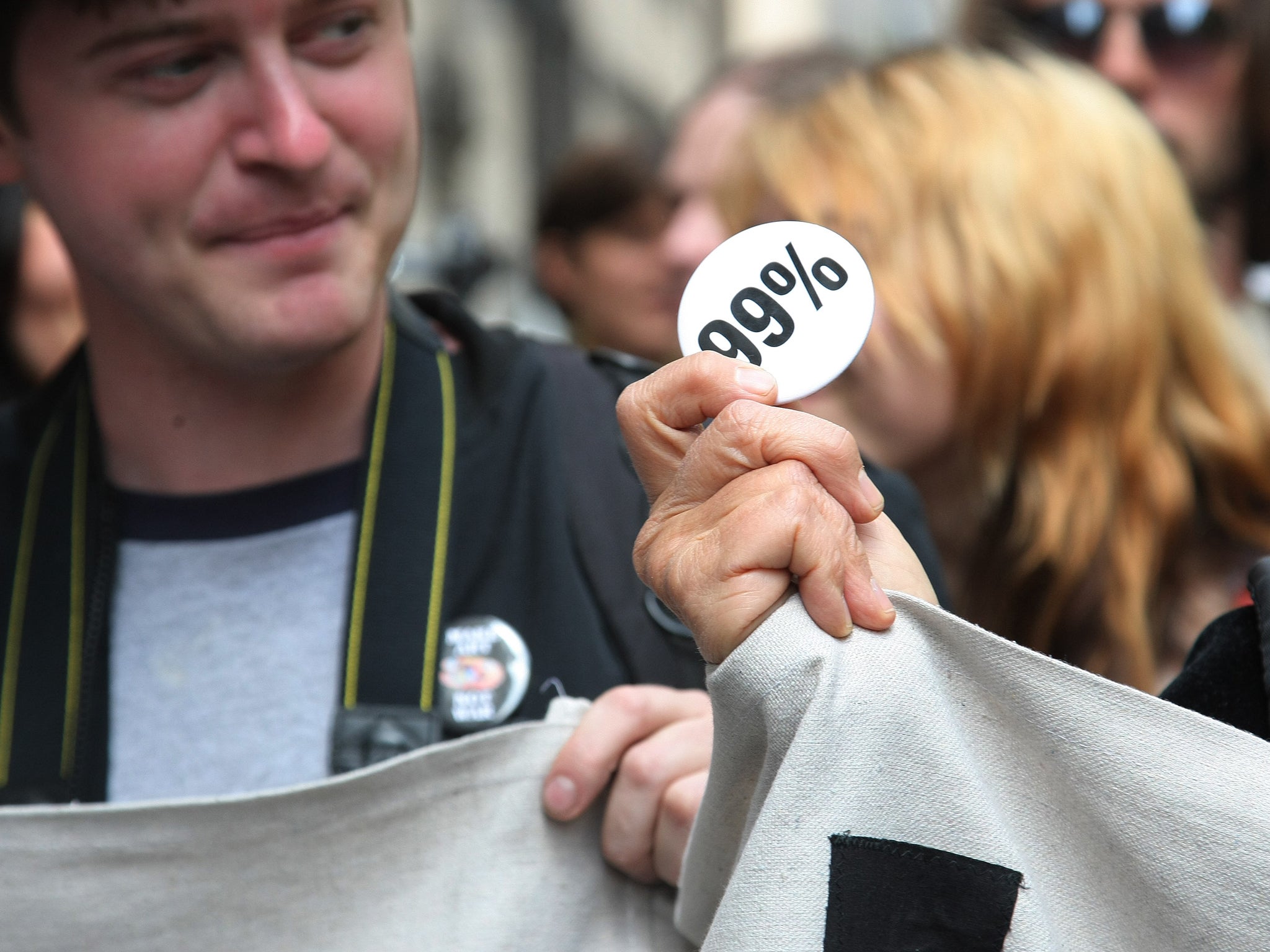Wealthiest 1% set to be richer than other 99% combined
Oxfam report warns that global wealth 'is becoming increasing concentrated among a small, wealthy elite'

Your support helps us to tell the story
From reproductive rights to climate change to Big Tech, The Independent is on the ground when the story is developing. Whether it's investigating the financials of Elon Musk's pro-Trump PAC or producing our latest documentary, 'The A Word', which shines a light on the American women fighting for reproductive rights, we know how important it is to parse out the facts from the messaging.
At such a critical moment in US history, we need reporters on the ground. Your donation allows us to keep sending journalists to speak to both sides of the story.
The Independent is trusted by Americans across the entire political spectrum. And unlike many other quality news outlets, we choose not to lock Americans out of our reporting and analysis with paywalls. We believe quality journalism should be available to everyone, paid for by those who can afford it.
Your support makes all the difference.The combined wealth of the world’s richest 1 per cent will overtake that of the remaining 99 per cent by 2016 unless action is taken to curb “shocking extremes” of inequality, a new report warns.
The richest 1 per cent currently own 48 per cent of all global wealth, Oxfam says. Next year that figure is forecast to exceed 50 per cent for the first time.
Using data from Credit Suisse’s latest global wealth report, the charity warns that rising inequality is holding back the fight against global poverty at a time when more than a billion people still live on less than $1.25 (83p) a day.
The report warns that global wealth “is becoming increasing concentrated among a small, wealthy elite”.
The richest 1 per cent include US investor Warren Buffett, former New York mayor Michael Bloomberg and Indian businessman Dilip Shanghvi. Those in the “1 per cent” command an average wealth of $2.7m (£1.8m) per adult.
The report is released today ahead of the World Economic Forum in Davos.
Winnie Byanyima, executive director of Oxfam International, said: “The scale of global inequality is quite simply staggering, and despite the issues shooting up the global agenda, the gap between the richest and the rest is widening fast. Failure to tackle inequality will set the fight against poverty back decades.
“The poor are hurt twice by rising inequality – they get a smaller share of the economic pie and because extreme inequality hurts growth, there is less pie to be shared around.”
Lynn Forester de Rothschild, chief executive of E L Rothschild, said: “Extreme inequality undermines economic growth and it threatens the private sector’s bottom line.
“All those gathering at Davos who want a stable and prosperous world should make tackling inequality a top priority.”
Oxfam research shows that 20 per cent of billionaires have interests in the financial and insurance sectors, a group which saw their cash wealth increase by 11 per cent in the 12 months to March 2014.
The charity made headlines at Davos last year with the revelation that the world’s 85 richest people were as wealthy as the poorest 50 per cent. This year, it claims that number has shrunk to 80 as the world becomes more unequal.
Join our commenting forum
Join thought-provoking conversations, follow other Independent readers and see their replies
Comments